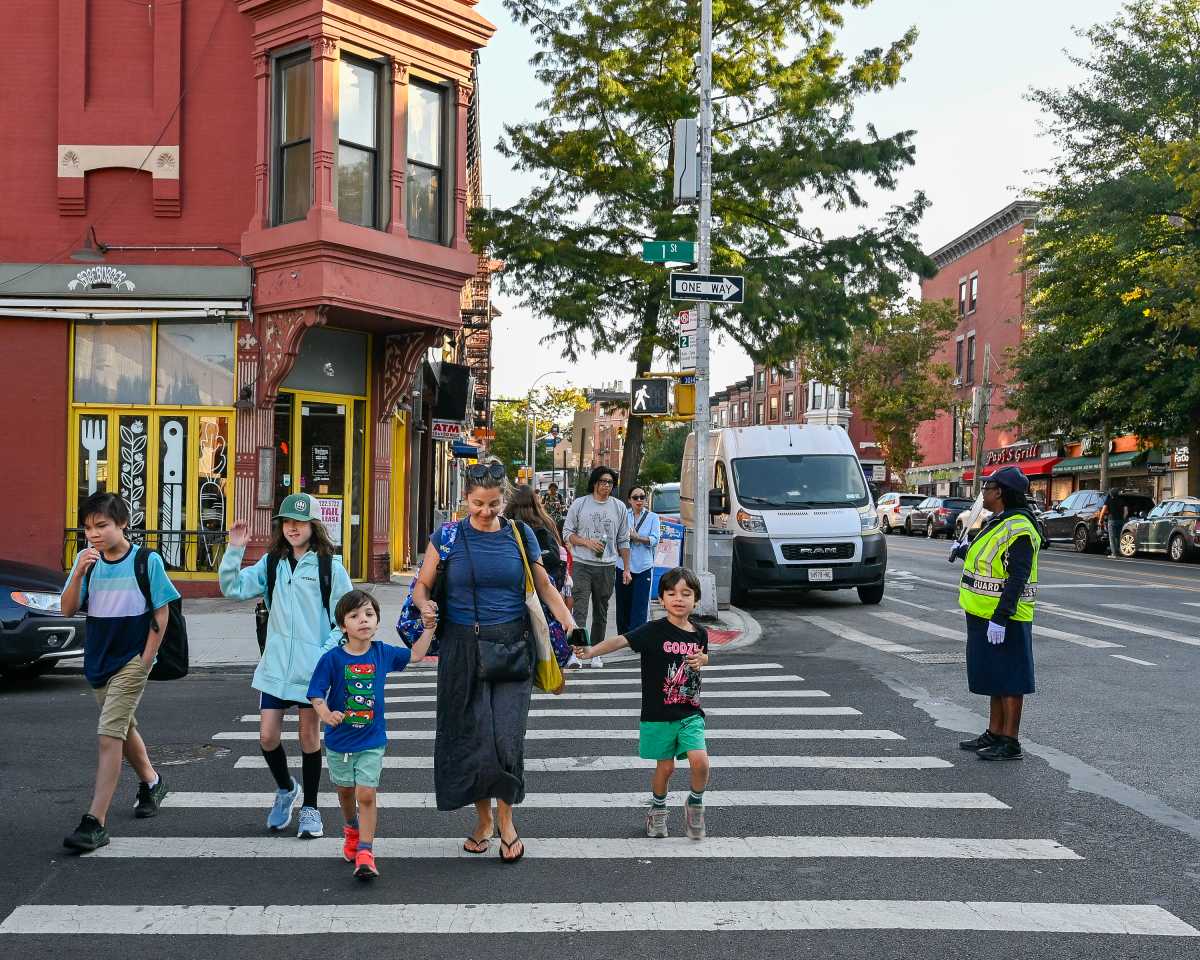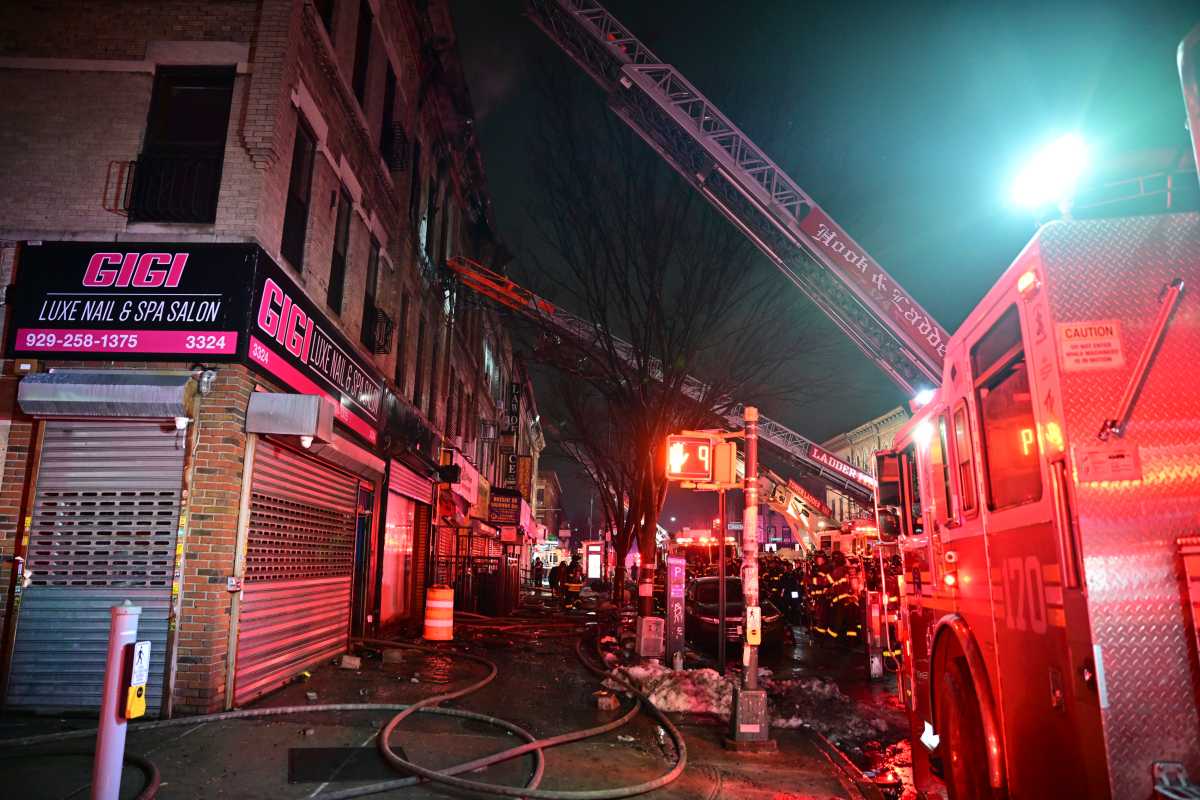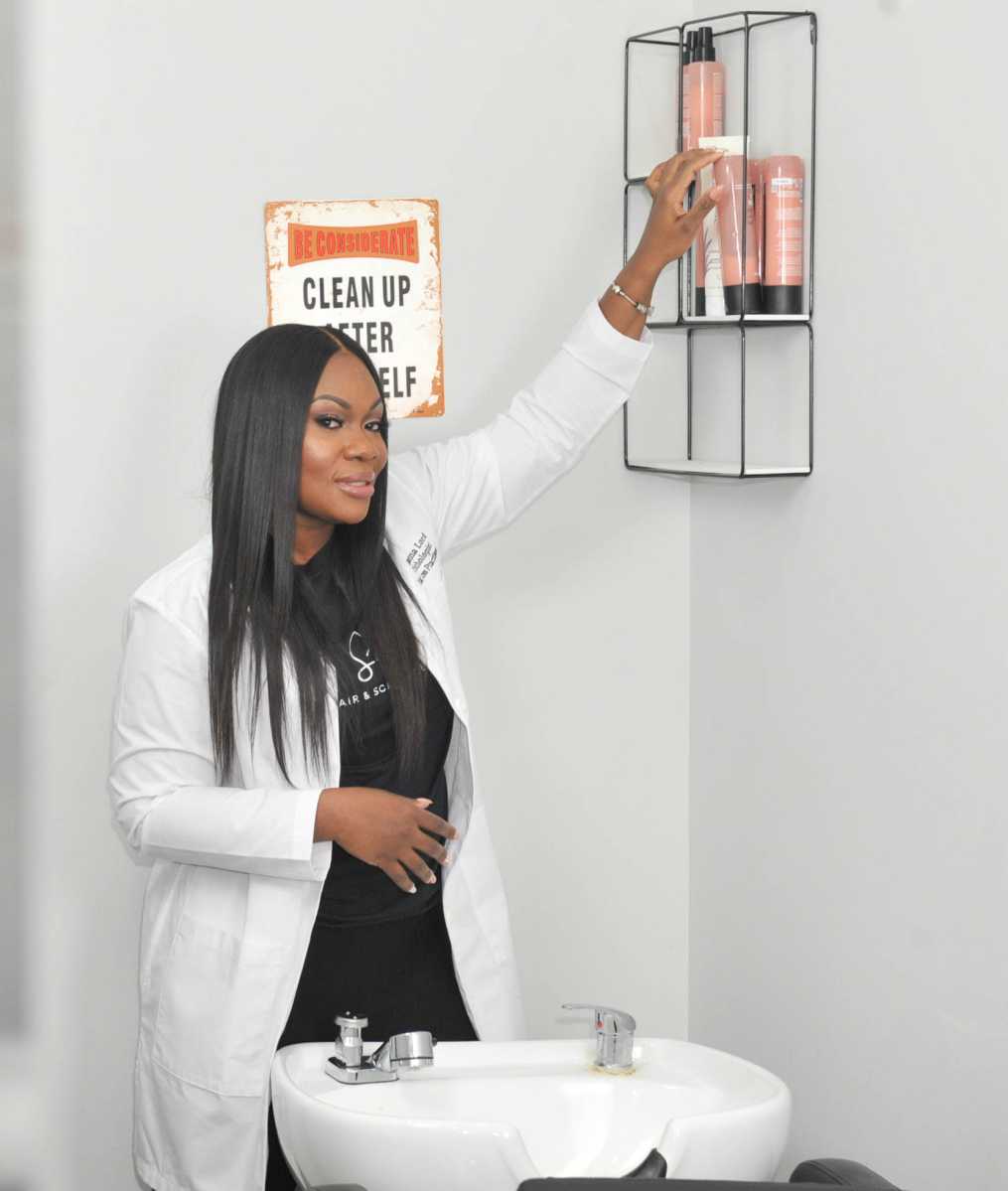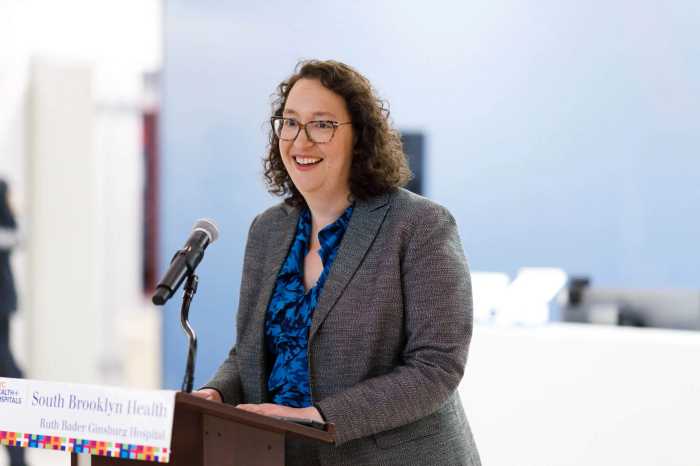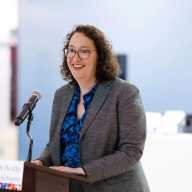Excitement, nerves and new beginnings filled schoolyards across Brooklyn on Thursday morning as New York City public school students returned for the first day of classes. From Bushwick to Park Slope and all across Brooklyn, families reflected on milestones, fresh starts and the rollout of the state’s new “bell-to-bell” cell phone ban.
At M.S. 582, The Magnet School for Multimedia Technology and Urban Planning in Bushwick, Governor Kathy Hochul greeted students at 8:45 a.m., emphasizing her push for distraction-free classrooms.
“We want to make sure you can keep learning,” Hochul said. “Kids from all of the state will see this change but you are among the very first to have this. Your teachers will have a better experience teaching you and getting to know you better.”
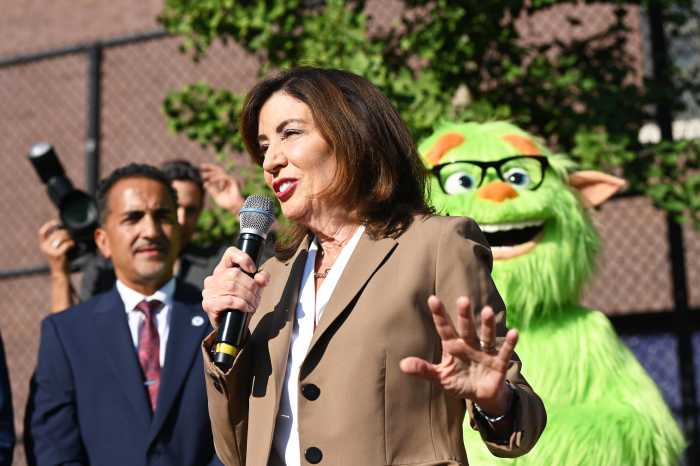
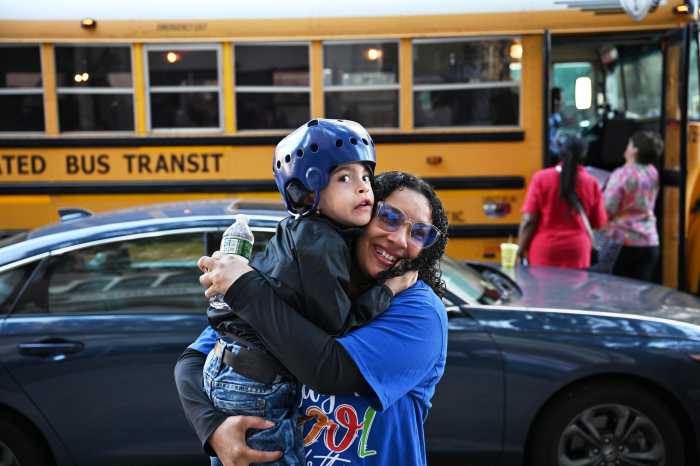
For many Brooklyn families, though, the ban sparked mixed reactions.
At P.S. 321 in Park Slope, parents Khalea and Austin dropped off their daughter, Leilani, as she entered her final year of elementary school.
Leilani, whose favorite subject is math, was “happy and excited” about starting fifth grade. “Because I’m going to sixth grade next year,” she added with a grin.
Her mom Khalea admitted to some bittersweet emotions: “It’s her last first day of elementary school. So I’m a little in my feelings.”
When asked about the statewide cell phone ban, Khalea said she saw both benefits and drawbacks. “I’m 50-50, because I understand. But a lot happens in schools these days, and it’s nice to know that there’s communication throughout the day… But I understand it’s to have the kids pay attention, so I see both sides.”
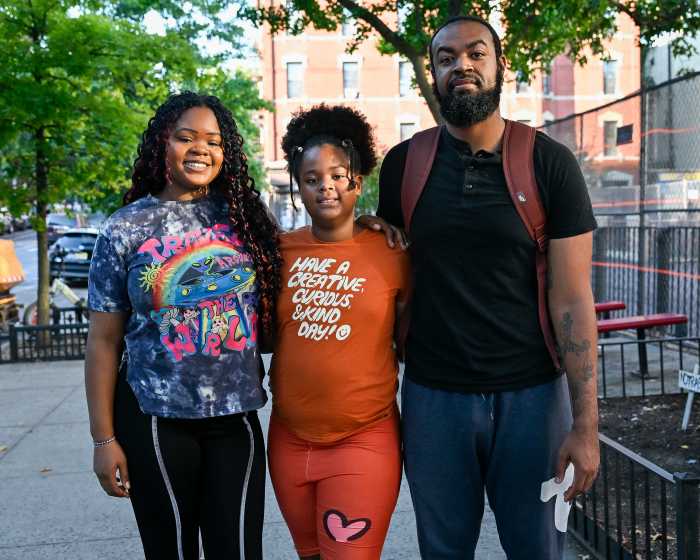
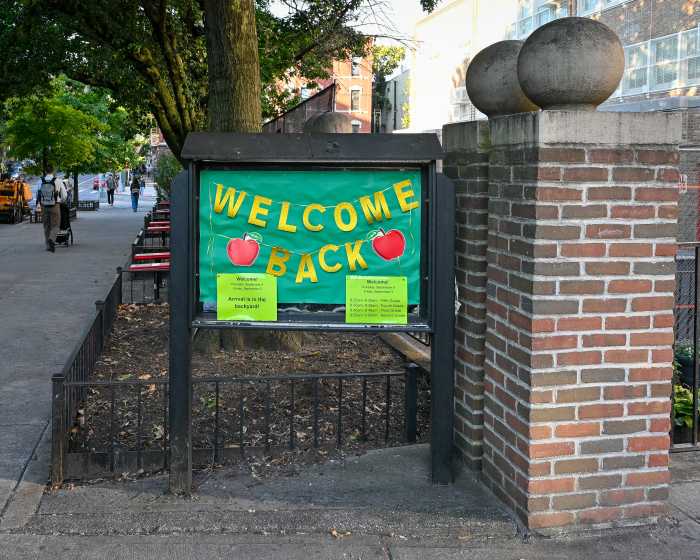
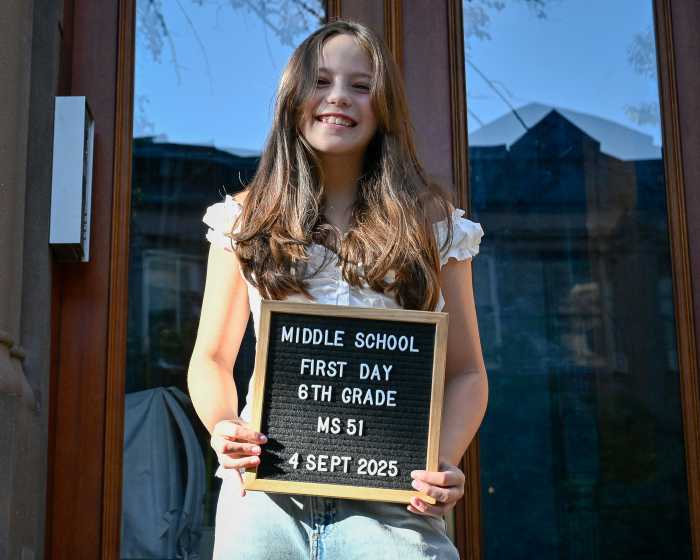
Austin, on the other hand, was unfazed. “I personally don’t really mind. I didn’t have a cell phone in fifth grade myself, actually. And there are still a lot of kids in the school who don’t have a phone yet. I feel like people forget there was a time when nobody had cell phones. So I think everybody will be fine. They’ll cope.”
Other families echoed a range of opinions.
Fifth-grader Geneva Martina-Morrison, also starting at P.S. 321, said she was both “nervous and excited” about making new friends this year. But she strongly opposed the ban. “I hate it. It’s to communicate with your family if you are in an emergency. If there’s an intruder, my first instinct would be to call my mother.”
Her cousin, Hesron Morrison, supported the change. “Sometimes phones can be a distraction, and when they can put that away and be one-on-one with teachers and engage in class, it is very important as students.”
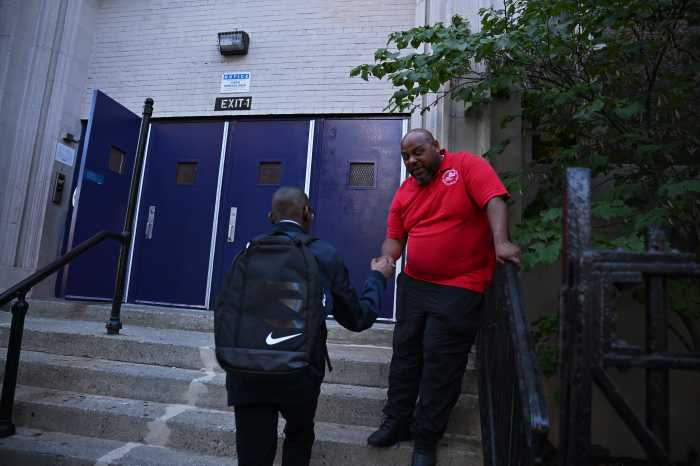
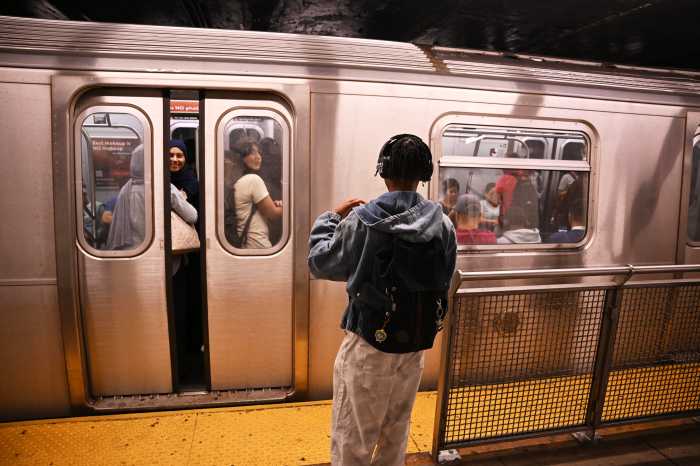
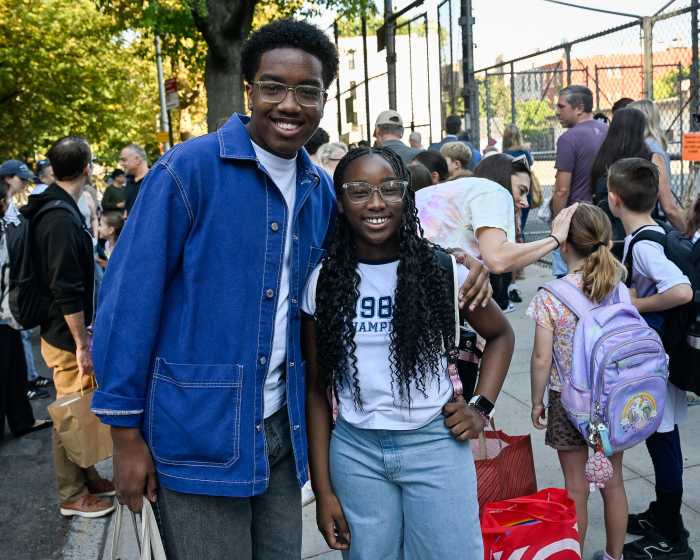
Some parents were firmly in favor. Carrie Schulman, whose daughter Genevieve began middle school at M.S. 51, called the ban “brilliant.”
“[The ban] puts the focus on learning and not the stress of who’s snapping you and is someone taking your picture without your permission and going to circulate it around the school? I just think all of that stress is removed, and I’m very grateful for it,” Schulman said.
Others, like a PTA member at a Brooklyn school, disagreed entirely. “I actually disagree with the ban,” the parent said. “I believe that the kids should have them in case of a medical emergency.”
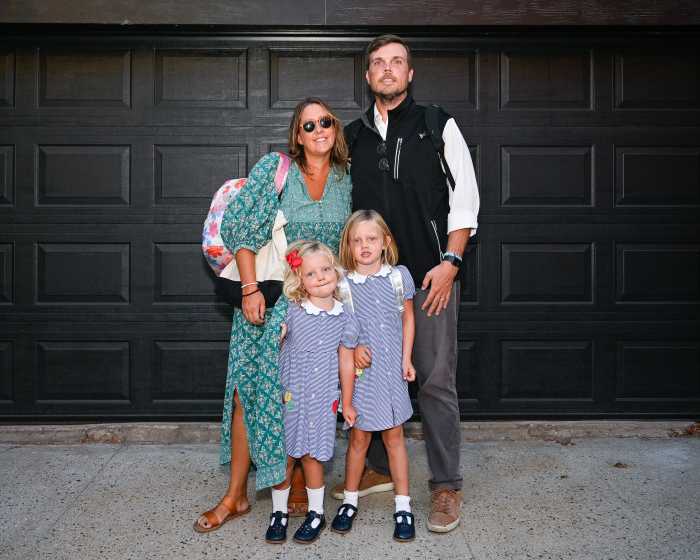
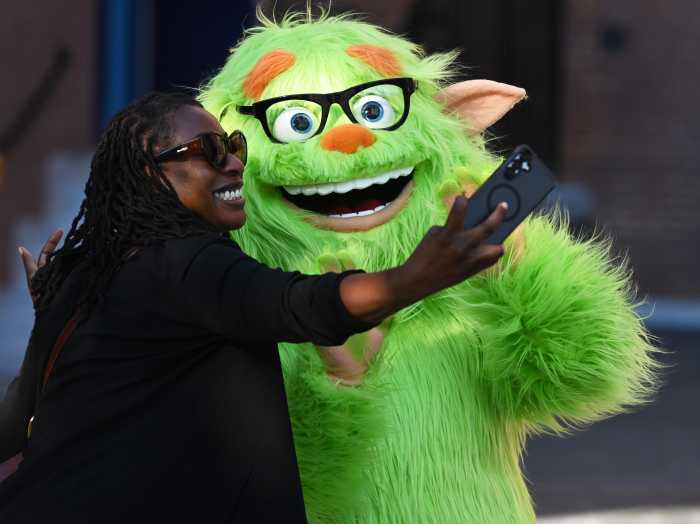

For some families, the first day wasn’t just about a new grade, but a new life. Siblings Rose and Thomas began fourth and second grade at P.S. 321 after moving from Curaçao. Their parents, Bram and Clara, said finding housing in the school zone was a top priority.
“We have friends in the neighborhood who pointed out that [P.S. 321] was a very good public school,” Bram said. “Once we got the house, which is just around the corner, it felt like a double win. So, I’m very happy and very excited.”
M.S. 51 parent Jolie Orringer told Brooklyn Paper that parents received a notice from the school that, due to a shortage of locking pouches, the phones would be collected in a bin for now.
“There was an email yesterday that notified us that the locking bags that the phones were supposed to go in were in short supply, and a lot of them didn’t arrive,” Orringer said. “And so until those locking bags arrive, the phones are just being collected at the beginning of the day and got to the office and then returned at the end of the day.”
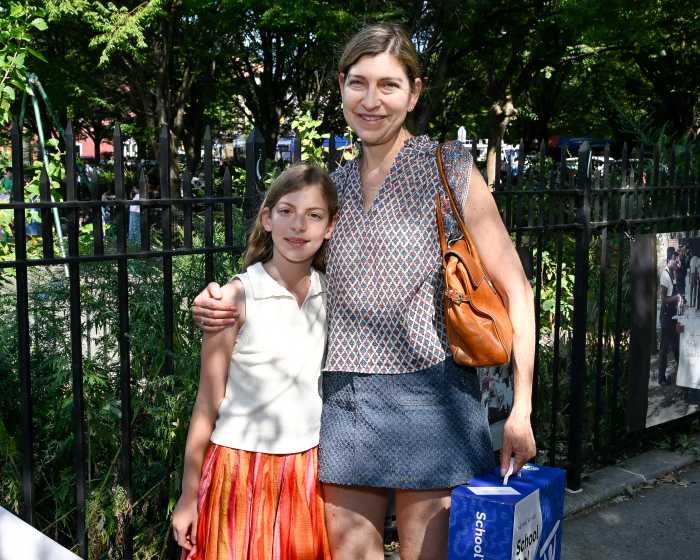
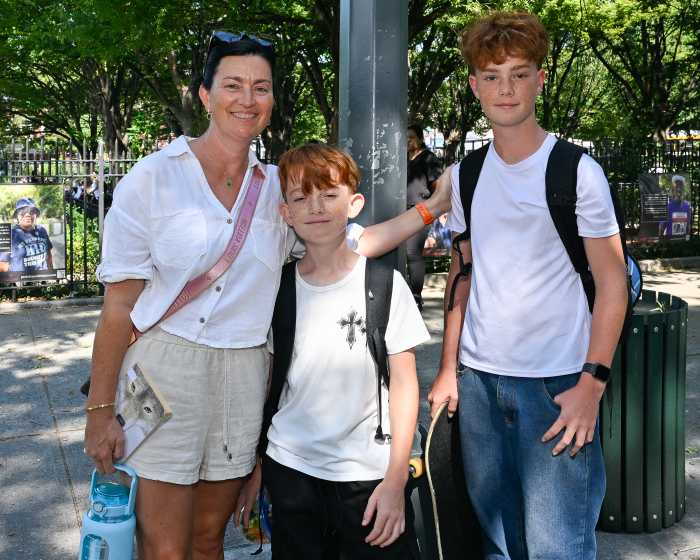
Orringer recalled her son’s experience with cell phone use when he was in middle school four years ago.
“He said that essentially, during lunch time and at breaks, everybody was on their phone and not directly interacting,” Oringer said. “It’s a great idea for kids not to have their phones during the day, because then they’re going to have an experience that’s more directly analog, and that allows them to have a much more immediate kind of human contact.”
Her daughter, sixth grader Lillian, doesn’t have a cell phone. “But a lot of kids were pretty sad putting their phones away,” she told Brooklyn Paper.
Fellow sixth graders Karishma and Adeola also didn’t have a problem with the cell phone ban.
“It was pretty good. Like, no harsh feelings,” Karishma said.
“I think it wasn’t that bad, because there was nothing distracting. So I think it was good,” Adeola added.
M.S. 51 students, brothers Beckett and Finn, told Brooklyn Paper that they left their cell phones at home.
Sixth grader Beckett pointed out that since he wasn’t allowed to use a cell phone in elementary school, the ban was “no big deal” for him. Finn, an eighth grader, said he doesn’t really use his phone in school, “so it’s not really a difference.”
Their mom, Jolie, called the “bell-to-bell” policy was a positive development.
“They’re close by, so if I need to know how they’re doing, I can just run down. So for me, that’s easy,” Jolie said. “I love no screens.”



